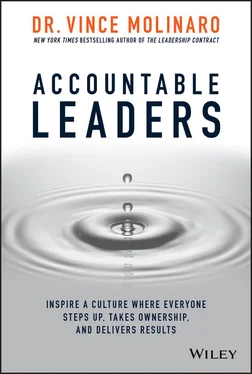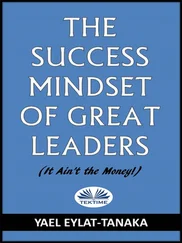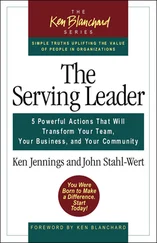I have spent close to three decades in my career, helping leaders, teams, and organizations aspire to become the best they can be. It all began when I was 27 years old and decided to start my own business. I left a large public-sector organization that did important work—it helped some of the neediest and most marginalized people in society get their lives back on track. We provided financial assistance, career development support, and access to retraining programs. The purpose of the organization was inspiring to me. Despite this, I quickly learned that the organization’s culture was drab and dreadful. In my time there, I saw Zinta, a senior manager, die of lung cancer, a disease she believed was a result of the stress she endured spending her career in a highly toxic work environment. 3This was devastating to me as Zinta was my mentor. At the time, I questioned whether her exposure to that toxic culture did indeed impact her health. Today, we know that it most likely did. In his book Dying for a Paycheck , Professor Jeffrey Pfeffer summarizes considerable research showing how toxic workplaces directly undermine people’s health and well-being. 4In the end, that experience with my mentor Zinta changed my life. It forced me to think hard about my career and my life’s work. Over time, I discovered my passion and mission: to work with people who aspired for more from their work. I wanted to work with individuals who wanted to be exceptional leaders, lead great teams, and create inspiring cultures.
At first, I provided career counseling services to private clients who were managers and senior managers in large organizations. They told me about the challenges they faced navigating their careers. I learned firsthand the impact that lousy leaders and mediocre managers have on employees—how they undermine confidence, create stress, and erode passion and engagement.
My clients also brought me into their companies. I ran seminars for employees, managers, and senior executives to help them deal with the volume of change taking place. At that time, organizational change was a hot topic (much like it is today). In parallel to running my consulting business, I also completed two graduate degrees. I conducted research on change and leadership. When I finished my doctoral degree, I felt it was time to go back into an organization and apply everything I had learned in graduate school. I did that by joining a start-up pharmaceutical company with an amazing culture. I learned firsthand what it takes to build one, but also learned what happens when you do not focus on sustaining it over the long term.
A few years later, I returned to the world of consulting. I was part of a firm called Knightsbridge Human Capital Solutions, headquartered in Toronto. My experience allowed me to work with some fantastic clients and colleagues. I led the leadership practice within the firm. At a personal level, I worked hard to try to be a good leader, to build a great team, and to contribute to creating an inspiring culture across our organization. Our formula for success was simple: Hire amazing people dedicated to their clients, create valuable thought leadership and solutions, and establish a strong culture. We did just that and became a dominant brand in our industry.
Then in 2015, The Adecco Group and LHH (a world-leading provider of talent development and transition services) acquired Knightsbridge. A new opportunity emerged for me. Now I was part of a global Fortune 500 company, and I was given a role with clear marching orders: Take the success formula that my team and I had implemented at Knightsbridge and export it globally. We did, and due to the commitment of many exceptional colleagues, we helped leaders around the world become more accountable to drive the success of their organizations.
My career came full circle when I decided it was time to start my own company again, which I did in January 2019. I felt I needed to focus 100 percent of my energy to my lifework and mission. In many ways, I have the same sense of purpose and zeal that I had when I was 27 years old. All the experiences over my career have given me a unique perspective on leadership which I gained by consulting to C-Suite leaders, designing and delivering award winning leadership programs for my clients, conducting research, and in leading successful businesses. As I look at the leadership landscape today and over the next decade, it’s clear that leadership matters more than it ever has. We need stronger leadership throughout our world. But exactly what kind of leadership do we need?
It’s About Leadership Accountability
What my work with clients has taught me is that if you want to improve as a leader, a team, or a company, the quickest and most enduring way to do this is by focusing on leadership accountability. When you do, it immediately puts you on a different trajectory.
In my book The Leadership Contract 5I define leadership accountability as the ability of individuals in leadership roles to step up and demonstrate personal ownership for their roles, be deliberate and decisive in the way they lead, and bring a sense of urgency, courage, and resilience to the position. They must not only demonstrate this accountability at a personal level, but they must also ensure it exists within their teams and with other leaders across their organization. They need to help inspire others to step up, take ownership, and deliver results. However, what I have discovered is that we have many people in leadership roles who simply are not accountable. They are more committed to the technical aspects of their roles—whether they are accountants, engineers, sales professionals, analysts, marketers, or investment bankers, to name a few. They do not bring the same level of personal commitment to the leadership aspects of their roles. I have come to learn many do not even define themselves as leaders, even though they have a leadership role within their company. They essentially treat leadership as a part-time job—something they do in addition to being technical experts.
I came to realize that our organizations are filled with thousands of part-time leaders. One of the primary reasons this has happened is because a lot of people get into leadership roles by accident. They excel at something technical, and organizations go to these individuals and promote them into leadership roles. The underlying assumption is that strong technical performance would translate into strong leadership performance. Sometimes that is true; but we’ve learned in practice that most of the time it isn’t. As a result, many companies have significant leadership accountability gaps. They have people in leadership roles who simply are not stepping up or leading in a way that their company expects.
My clients asked me to help them find a way forward to resolve this problem. In my book, I positioned the critical idea of a leadership contract that stipulates those in leadership roles must understand they are held to a higher standard of behavior. This idea of a leadership contract has always existed, but we have never made it explicit with leaders. In fact, many people who are in leadership roles have treated the leadership contract like an online contract—you know, the one that comes up on your laptop or tablet with all the terms and conditions. When it does, most of us simply scroll down to the bottom of the screen and click “agree” without reading a single word. You know you are bound to something; you are not quite sure what that is. This analogy has resonated with a lot of leaders I work with. They acknowledge that they haven’t been deliberate in considering what they signed up for when they took on a leadership role. Now, given the challenges that leaders will face today and over the next decade, it’s critical that this idea of a leadership contract becomes explicit and that leaders appreciate what they actually signed up for in their roles.
Читать дальше












